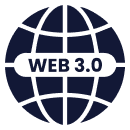For decades, Government Software Development Projects in Saudi Arabia were seen as slow, fragmented, and tangled in bureaucracy. Long queues, paperwork-heavy processes, and siloed departments made public service delivery a frustrating experience for both citizens and businesses. But today, that picture is being rapidly rewritten.
Saudi Arabia is undergoing one of the most ambitious government overhauls in the world. And at the heart of this transformation lies a powerful shift from bureaucratic systems to digital-first governance.
It’s a nationwide reimagination of how the government works. Driven by Vision 2030, the Kingdom is on the long-term roadmap to diversify the economy, empower citizens, and build a globally competitive digital society.
And software? It has become a central component of national progress.
From digital identity platforms to AI-powered citizen services and smart city infrastructure to real-time governance dashboards, government software development projects are laying the digital foundation of Saudi Arabia’s future. Successfully building these systems requires the proven expertise of professional software development companies in Saudi Arabia. They’re enabling agility, transparency, and service at scale.
In this blog, we’ll explore the key trends reshaping government software in KSA, the sectors leading this digital acceleration, and the opportunities opening up for tech providers, startups, and strategic business partners ready to co-create the Kingdom’s next-generation digital infrastructure.
The Strategic Initiatives Which Are Pushing The Demand for Government Software in Saudi Arabia

Rapid digital transformation in Saudi Arabia is being promoted strategically through a far-reaching national vision, regulatory bodies, and mega-investments. It carries with it monetary grants and international partnerships. Now, let us explore initiatives that are reinventing government services.
Vision 2030 and the National Digital Transformation Program
Since Vision 2030 is the grand scheme of governmental reforms, it aims to digitally rewrite the whole nation. At the heart of Vision 2030 is a bold ambition. It wants to make Saudi Arabia a global hub of technology, innovation, and efficiency. And this starts with its government.
The National Digital Transformation Program (NDTP) is the execution arm of the digital agenda under Vision 2030 that directs the upgrade of public sector systems through scalable, secure, and citizen-centric software solutions.
From e-government platforms to AI-supported decision-making systems, NDTP is fundamentally restructuring the working processes of ministries, municipalities, and public service providers. So, as a result, it is placing government software development in Saudi Arabia front and center as a tool for socio-economic progress.
This transformation facilitates governance in real time for data-driven policymaking and improves the experiences for all citizens and residents in the Kingdom.
Role of SDAIA, MCIT, and Digital Government Authority (DGA)
Three government bodies are behind the tech-first transformation. These bodies will act as the digital architects of the future.
- SDAIA (Saudi Data and AI Authority) ensures that all government digital initiatives are data-driven and AI-ready. It designs national AI strategies, centralized data governance, and ensures ministries use intelligent technologies ethically.
- MCIT (Ministry of Communications and Information Technology) oversees the necessary digital infrastructure, broadband expansion, and policy frameworks for innovation while also playing an important role in enabling custom software development for government in Saudi Arabia through regulatory clarity and technical direction.
- DGA (Digital Government Authority) remains the primary regulator of government IT projects in Saudi Arabia. It determines the norms and standards, interoperability frameworks, and security protocols for ensuring a consistent approach among ministries and agencies.
Budget Allotments and Government Funding for Tech Innovation
There has been funding in the billions of riyals over the past years for digital infrastructure, AI, cloud computing, and cybersecurity in the public sector. In 2024, a very large portion of the national budget was allocated for upgrading core systems, building digital identity platforms, and fast-tracking automation. Such almost limitless financial backing has created an environment conducive to the entry of global tech giants as well as local innovators.
Public-Private Partnerships and Foreign Collaborations
Government Software Development Projects in Saudi Arabia knows that becoming digital is not a one-man show. It needs ecosystems, partnerships, and domain expertise. Hence, the reason why the government encourages public-private partnerships (PPPs) as well as global cooperation.
From strategic partnerships with cloud providers like Oracle and Google Cloud to co-innovation labs with foreign companies, the Kingdom is marrying global expertise with local knowledge. These partnerships are also giving rise to new opportunities in software development for startups in Saudi Arabia in domains of civic tech, public health, logistics, and AI services.
Latest Statistics That Indicate The Growth of Government Push for Software Development
In 2023 alone, government ICT spending increased by 20% y‑o‑y, totalling SAR 41.9 billion (USD 11.2 billion). (Source: Expert Market Research)
Around 97% of government services are now digitized, leading to annual savings of USD 1.66 billion. (Source: Statista)
Saudi ranks 2nd among G20 countries in e‑Government Development, 1st in digital government services regionally, and 4th globally in online service index rankings. (Source: Arab News)
Saudi AI spending is projected to grow from USD 720 million in 2024 to USD 1.9 billion by 2027, a 40% CAGR. (Source)
In 2023, IDC estimated USD 35 billion spent on software (including cloud) and IT services, with annual growth rates of 11.4% (software) and 8.7% (IT services) forecasted through 2026. (Source)
Key Trends in Government Software Development in Saudi Arabia

With digital projects under the ambit of the Saudi Vision 2030, software development is becoming the very pulse of building smarter governance, citizen trust, and scalable national infrastructures. The below are the key trends affecting the future of software development for the public sector in Saudi Arabia on both fronts and what these trends mean to stakeholders across the board.
1. AI and Data-Driven Decision Making: Real-Time Governance in Action
More and more investments are being deployed by ministries and public agencies in the use of AI and real-time analytics for decision-making to forecast demand and provide enhanced service solutions. The country is earnest about AI-powered e-government software development in KSA, ranging from predictive analytics in healthcare to intelligent traffic systems in smart cities.
SDAIA is enabling national data platforms so that insight is not trapped in any silos-they get shared, secured, and made actionable in several sectors. As a result, it becomes a bit faster, fairer, and more responsive to citizens’ needs.
2. Cloud-First and Smart Infrastructure for Agility and Scalability
Changing the existing infrastructure is huge in Saudi Arabia while adopting cloud-first across government systems. Ministries are migrating legacy services onto secure cloud environments, enabling agility, cheap cost, and interoperability for departments.
The transition is the very heart of KSA government technology initiatives in partnerships with technology providers such as Google Cloud, Oracle, and STC Cloud. Apart from an upgrade, the transition is a guarantee for future-proofing public systems, so that they can seamlessly integrate with emerging technologies like IoT, blockchain, and quantum computing.
The transition is the very heart of KSA government technology initiatives… For top mobile app development companies in Riyadh, this opens opportunities to architect platforms that are not only scalable but also resilient and modular by design, ensuring compliance with DGA standards.
3. Citizen-Centric Platforms: Putting Users at the Center
Interacting with the government was once comparable to finding one’s way through a maze of disconnected portals. Now, Saudi Arabia is going full throttle towards having unified mobile-first e-government experiences that can rival that in convenience the experiences in the private sector.
User services are in the tens for these flagship platforms, such as Absher, Tawakkalna, and Sehhaty, ranging from renewing a license to booking an appointment for health to reporting a crime. This change signifies a pledge on the nationalist front for citizen-centric software development, thus setting a separate global standard for software development for public sector in Saudi Arabia, especially around service design and user trust.
4. Security by Design: Digital Sovereignty at Risk
With expansion comes the risk of malicious attacks; Saudi Arabia has therefore made cybersecurity from inception a foundation in all its digital endeavors. Government systems are now being developed to thwart any cyber threats with multi-layer security, adopting zero-trust architecture, and active threat intelligence.
From a national perspective, Essential Cybersecurity Controls and a National Cybersecurity Authority would be developed so that the basic idea of resilience is absorbed by all new public platforms. They then go on to uphold national digital sovereignty, where infrastructure and citizen data security are aligned with global best practices.
5. Interoperability and API-Driven Ecosystems
API-driven interoperability is one of the promising backend trends in Saudi public digital strategy. The government entities are investing in shared service layers and open integration standards to allow communication among platforms across ministries, treated as safe and real-time.
Apart from preventing duplication, it fast-tracks the rollout of digital services and ensures smooth collaboration across ministries. For instance, integration of health data with insurance or benefits at work can now be done through secure APIs. It has been a game-changer for e-government software development in KSA, which creates a platform model rather than isolated point solutions.
Must Read: Enterprise Software Development in Saudi Arabia: A Complete Industry Guide
What do These Trends Indicate?
The message is loud and clear for vendors, product builders, and innovators: the Kingdom is not just killing time; digitizing is in the act of building an intelligent, secure, and inclusive digital nation. Whether you’re a global tech firm, a SaaS startup, or a UI/UX design studio, software development for the public sector in Saudi Arabia offers fertile ground for long-term business growth. Let’s explore where the real opportunities lie.
Business & Software Development Opportunities for Startups & Entrepreneurs

With billions in private funding and strong political will behind the Vision 2030 digital projects, the Kingdom has now become a lure for technology disruptors looking to scale for meaningful impact.
Whether you are an international tech firm, a SaaS startup, or a UI/UX design studio, the government-side software development space in Saudi Arabia would provide fertile grounds for long-term business formation. Let’s talk about where the opportunity lies
Contracts, Tenders, and Vendor Partnerships for Local and International Companies
Government procurement in Saudi Arabia has sharply changed in the age of transformation. Instead of a rigid framework, it is moving toward a more collaborative and innovation-friendly type of tender process. Agencies now recruit tech partners well able to provide deliverables with a greater emphasis on outcomes that also allow following national priorities.
The government-issued digital tenders are frequently posted on various portals like Etimad, and prequalification schemes are really speeding up the process of moving vendors/contractors into their procurement rolls. The government-issued digital tenders are frequently posted on various portals like Etimad, and prequalification schemes are really speeding up the process of moving vendors/contractors into their procurement rolls. All help-making it a fair ground for local companies and international companies, such as a reputable app development company, to compete. Opportunities for companies in line with e-government software development in KSA are becoming available across sectors: Smart cities, health tech, fintech, education, and law enforcement.
Opportunities for SaaS/PaaS Vendors, Dev Agencies, and Cloud Service Providers
With modernization and refinement of the agencies’ tech stack, the platform underpins modularity, scale, and security over an excellent build, usually custom. This spells opportunity for SaaS and PaaS vendors willing to offer somewhat plug-and-play SaaS across HR, document management, CRM, asset tracking, citizen engagement, etc.
Cloud service providers are in high demand as the kingdom moves towards a cloud-first approach. Numerous ministries are seeking solutions that support DGA’s standards on interoperability and cybersecurity.
Such changes start creating opportunities for a whole new breed of vendors, ranging from innovative startups to top government software development companies in Saudi Arabia who can deliver agile architectures without sacrificing compliance or performance.
Growing Demand for UI/UX Design, Cybersecurity Consulting, and Integration Services
The Saudi Arabian public sector is focused equally on the user experience. As ministries create and release citizen-facing platforms, UI/UX expertise is skyrocketing, with a need to provide support for services that are intuitive and user-friendly in multiple languages.
Cybersecurity consulting is a booming field as well. Agencies must become accredited under the Essential Cybersecurity Controls (ECC) framework.
Vendors well-versed in data governance, implementation of zero-trust architectures, and secure API integrations are highly in demand. This technical bridging creates fertile grounds for software development companies in Saudi Arabia.
Talent Development and Capacity-Building Projects for Local Developers
Building capacity for the domestic tech scene has a strong emphasis. Government bodies and private entities work alongside one another in upskilling makers by providing coding bootcamps, internship programs, and incubation programs that are mentorship-driven and helpful for nurturing the next generation of Saudi software developers.
The combination of Tuwaiq Academy and global partners (e.g., Amazon AWS Educate, Microsoft Leap) is helping to build technical muscle around the edges in AI, cybersecurity, cloud, and full-stack development.
Top Priority Sectors That Have High Potential to Leverage Government Software Development Projects

As Saudi Arabia speeds up digital transformation, government software projects are shaping the way core sectors are functioning, innovating, and serving the citizens.
From smart healthcare to smart policing, software development services are creating a huge impact in the real world. Let us explore the high-priority sectors where technology makes the impossible possible.
1. Healthcare: AI Diagnostics, E-Health Records, Telemedicine Integration
Healthcare tech-wise is undergoing a radical transformation in Saudi Arabia. From AI-powered imaging tools to fully digitized patient records, the sector is quickly becoming a testbed for AI software development in Saudi Arabia.
Flagship government platforms such as Sehhaty and Wasfaty allow patients to monitor their health in real time, manage prescriptions, and arrange for remote consultations. E-health records are now being integrated among hospital systems all over the Kingdom, alleviating redundancies and assisting patient care.
For software development firms in Saudi Arabia, the sector presents opportunities to design secure and interoperable platforms for use in diagnostics, remote care, and predictive analytics.
2. Education: National LMS Platforms, Virtual Classrooms, Skill-Building Tech
The Ministry of Education of Saudi Arabia has put its full weight behind digital-first learning. Since the pandemic hit, National Learning Management Systems (such as Madrasati) and virtual classrooms have been on the rise. Hence, the education sector, through its endeavors, is further investing in scalable, secure, and interactive platforms.
Especially as the Kingdom pushes to align its youth with future-ready skills. IT software companies in Saudi Arabia now play a critical role in building platforms accommodating seamless services to millions of students, teachers, and parents.
3. Municipal & Smart Cities: Smart Traffic, Utilities, and IoT-Based Infrastructure
With giga-projects such as NEOM, The Line, and Qiddiya, Saudi Arabia is constructing intelligent ecosystems from scratch. Successfully executing these complex IoT and urban analytics projects requires deep expertise, often sourced from leading regional providers specializing in Saudi Arabia mobile app development.
Municipalities have been investing in connected infrastructure, digital permitting systems, and predictive maintenance tools for public utilities. All these developments are creating opportunities for Saudi Arabia software development companies that specialize in sensor integration, geospatial tech, and real-time urban analytics.
4. Finance: Digital Zakat & Tax Authority Platforms, E-Payments
Another major hub of transformation remains this financial sector. The Zakat, Tax and Customs Authority (ZATCA) has digitized its systems for filing taxes, customs declarations, and payments, all using secure platforms that are API-powered. E-wallets and government-linked fintech services, on the other hand, are growing rapidly.
Secure fintech solutions are increasingly demanded as Saudi Arabia moves toward a cashless, compliant, and transparent fiscal system. Therefore, this opens doors for software outsourcing companies in Saudi Arabia that can impart domain knowledge in blockchain, AML compliance, and secure APIs.
5. Judiciary and Law Enforcement: Digital Case Management, Facial Recognition Tools
Justice and public safety are digital-first now. Courts are going in for full digitization, where online filing, remote hearings, and AI-assisted case scheduling are at the forefront. Law enforcement, meanwhile, is investing in facial recognition, real-time surveillance, and predictive policing.
These require absolute trust in software systems with very strict controls for data privacy, with interoperability across multiple agencies, and with real-time analytics. Here is a chance for any Saudi Arabia software development company to be involved, not only in system design but also in promoting public accountability and even justice reform.
What Does This Mean for Business People and Tech Stakeholders?
Each of these sectors is evolving fast. And each is backed by a clear government vision, strong regulatory support, and deep funding. For developers, business strategists, and product teams, the message is clear: aligning with government priorities unlocks massive potential.
For global players looking to make a regional entry, partnering with established software development firms in Saudi Arabia represents a huge gateway into one of the boldest digital ecosystems of the world.
Must Read: Custom Software Development in Saudi Arabia: Cost, Process & Benefits in 2025
How TechGropse Can Help You Take Advantage of Government Software Development in Saudi Arabia?
Government software development in Saudi Arabia is a national mission. With TechGropse, you have a partner who understands the nuances, urgency, and scale that are essential to success.
TechGropse is not just about building software. We align digital solutions and position you alongside the speeding jet of Saudi Arabia’s public sector transformation. How we help you lead the KSA market by providing you:
- Regulatory-Ready solution from day one
- Custom Platforms for Public-Good Impact
- End-to-End Partnering of Globally Top-notch Firms and Local Startups
- Prioritized Domain Expertise
- Scalable Delivery with a Future Perspective
Conclusion
Saudi Arabia is embracing a bold and digital-first future from the ground up. Government software projects are no longer slow-moving initiatives. They are fast-tracked and well-funded by the KSA government itself.
When is an ideal time for engagement anyway? Right now! Because frameworks now exist. Budgets are real and tangible, the regulatory clarity is stronger than ever, and most importantly, the Kingdom seeks tech partners who can move fast, build secure and scalable systems, and align very deeply with national priorities.
FAQs
Saudi Arabia is digitally transforming pursuant to Vision 2030, backed by strong strategic frameworks like the National Digital Transformation Program and agencies such as SDAIA, DGA, and MCIT. Hence, there is an alignment that sees software development to be the backbone of the modernization of the industries in the public sector-from healthcare, education, finance, and so on.
Cost varies widely depending on the size of the project, the complexities within it, and the compliance requirements. Apps at the smallest scale could begin from somewhere between SAR 250,000–500,000, while big, large-scale, multi-agency platforms will go beyond SR 5 million. Pricing, however, would vary depending on data, security, cloud infrastructure, and localization.
Startups could tap into public-sector tenders, public-private partnership frameworks, and frameworks for foreign collaborations, especially on the agile side of civic tech, fintech, and AI. With a nurturing regulatory environment and funding, early-stage companies are ideally poised to address specialized platforms that scale strategically.
With substantial monies at disposal, and in the wake of a stable set of government frameworks with increasing transparency in procurement channels, the ecosystem has remained suited for players that can provide speed, compliance, and alignment with national goals.
By creating long-term, output-based partnerships, investing in local talent, and embedding systems that citizens will easily maintain for a very long time to come. They will be remembered by those who build with cultural empathy, strategic foresight, and scalable architectures—not for mere projects but for national impact.













































































